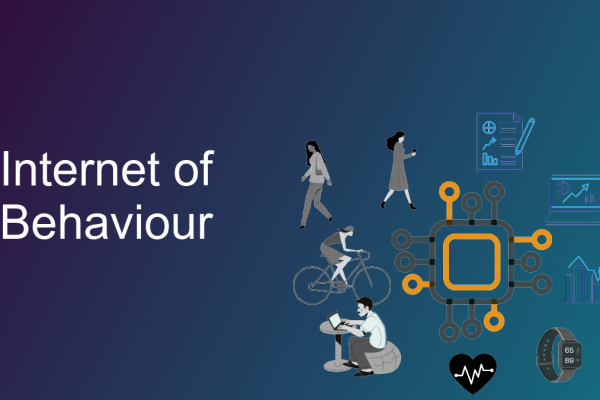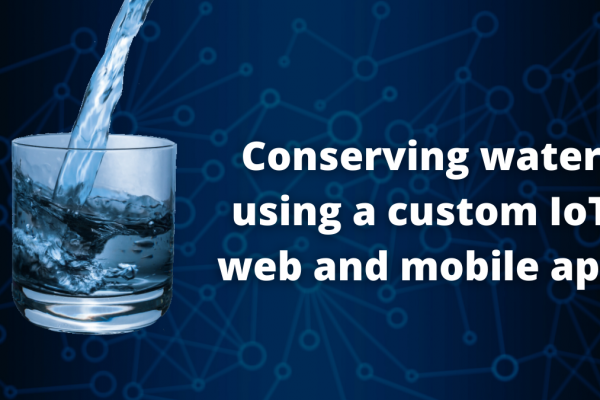The Internet of Things has revolutionized the business scenario by minimizing human intervention in performing laborious tasks. By enhancing interoperable communications between systems and by procuring real time data, IoT has proved its applicability across industries. Since IoT is a big network of connected devices, there is constant exchange and storage of data. The vastness of the network also leaves scope for cyber security threats. Though many identified security issues were resolved, new forms of digital attacks occur to disrupt smooth progress of IoT applications. Therefore, IoT security is vital for smooth functioning of business enterprises. IoT securities include a wide range of techniques and protocols used to mitigate the growing concerns in the dark web.
The Importance of IoT Cyber Security
Recent studies have proven that half of the IoT enhanced enterprises have identified IoT as the most vulnerable part of their security. Surprisingly, most of them have faced cyber security threats in the past one year, out of which, 44% were serious and 22% put their business operations at risk. This data highlights the need for better IoT privacy and security solutions.
Here are a few reasons to showcase the need for a tighter IoT cyber security:
- Secure IoT solutions signify overall security of network:
Since IoT network is interconnected with other devices like servers, computer systems and even smartphones, a secure IoT system is essential to confirm the protection of all devices connected to it. The slightest security breach in the IoT network can open gates to hack all the devices connected within the IoT system. Therefore, it is important to choose the best IoT platform that guarantees security to your business assets.
- Physical attacks on IoT devices leads to financial and data loss:
It is important to safeguard the fragile IoT hardware as they possess sensitive sensors used for quick and smooth data transmission. A minute fissure in any one of the devices can lead to loss of data. Such infested devices can be hosts to large scale cyber-attacks like distributed denial-of-service (DDoS) attacks. Thus, the user is denied access to personal data and systems, disrupting smooth business transactions.
- IoT cyber threat poses significant risk to privacy:
IoT connected devices process extensive data as a network. The type of data can include personal information provided for authentication purposes. The users are not always aware of the extent to which a person’s information is used. This may lead to severe breach of privacy, if the personal information is used by hackers without the consent of the user. Therefore, any security threat to IoT enhanced network is also a threat to privacy.
Studies show that seventy-one percent of the IT leads who faced cyber-attacks in their business do not blame IoT technology for the misfortune but blame lack of enhanced security standards that had to be adapted before relying on the technology.
Therefore, secure IoT solutions should not be a choice, but a mandate. It is important to get services from top IoT vendors who guarantee secure IoT solutions. This can be the supreme reason for you to contact Nuventure. We are one of the top IoT solution providers promising secure services. To know more, connect with us.
Reasons for IoT cyber-attacks
- Poor hardware security:
The power of networking depends upon the quality of hardware and software used in the IoT systems. If the hardware is built of low-quality material that is not resistant to physical attacks, the sensors attached to them can be easily damaged or exploited to suit unauthorized attacks. Therefore, it is necessary to build robust IoT hardware as the first step to secure IoT solutions.
- Flawed software and applications:
It is essential to keep the software and applications used in IoT networking and data storage updated so that even the slightest error in the system due to third party access can be detected. Besides, the software used in the system needs to be testable as well as maintainable for a long period of time so that the data storage is efficient. The compatibility of software to timely testing procedures can help reduce data security attacks.
- Weak channels of communication:
The internet used in IoT networking is based on Transmission Control Protocol/Internet Protocol (TCP/IP) communications and operates using the seven-layer OSI model. Research has proved that these protocols are too weak for the emerging IoT applications. This incompatibility may lead to data vulnerability issues, inviting random cyber-attacks.
List of Common IoT Threats
With the emerging IoT applicability, there has been a rise in the attacks on data protection. Here are a few cyber threats faced by the IoT system:
- Shadow IoT: These are devices or applications that gain access to the IoT network without the permission of the controlling unit. In such cases, the intruding devices need not meet the security standards recommended for safe transmission of data, leading to data breaches.
- IoT malware attacks: These are software designed to disrupt the smooth transmission of data in an IoT network. Like a virus, the disruption spreads from one device to another device in the network, breaking down the security barriers in the network.
- Emergence of IoT botnets: Using command and control software, controllers with illegal intentions can convert the connected system in IoT into a malicious botnet. Botnet is a network of computers which are affected by malware. This network of contaminated devices is then used to target the data cloud of the company the controller wants to hunt down. Thus, the power of connectivity is used for selfish motives.
- Physical tampering of IoT devices: For enhanced connectivity and for accurate collection of data using sensors, IoT hardware are usually exposed to the external environment. Especially in agriculture and healthcare industries, the devices are exposed to harsh chemicals in pesticides, fertilizers and medicines, depending on the industry. Protecting the external skin of the hardware using chemical and water-resistant materials can prevent damage caused by physical tampering.
- IoT ransomware attacks: When the attackers controls or locks the IoT device in return for ransom, the consequences are many. The controller can hack the device for personal data and can access the network even after the ransom is paid. Therefore, such attacks have unpredictable consequences.
- Attack on supply chain of IoT devices: Right from the manufacturing to the full-fledged functioning stage, a cyber-attack on the supply chain of IoT devices can result in security breaches.
- Spoofing of IoT devices: This is another type of attack in which a device that is identical to the original IoT device is used to gain access to the confidential data in the IoT network. This type of attacks is difficult to detect as the attacker gains confidence over security through similar looking malware-spreading devices
- DNS centralized attacks: IoT networks depend upon DNS centralized naming systems for deployment. However, DNS may not have the capacity to handle the large-scale data imparted by multiple devices in an IoT network. Thus, if the unauthorized attacker targets the vulnerabilities of DNS, the IoT network will be prone to cyber-attacks.
The above are only a few among the possible security breaches in an IoT-enhanced enterprise. Therefore, for safe IoT-enhanced enterprises it is necessary to approach IoT development services that prioritize both security and efficiency. Nuventure has the legacy of serving the best target oriented and cost-effective IoT solutions to the customers. With our specialized IoT developers, we stay up to date with security standards, offering secure IoT solutions as per the requirement. Connect with us.
Nuventure: The Best IoT Platform for Secure IoT Solutions:
Our IoT solutions cater to the following industries:
- Smart homes
- Water management
- Industrial IoT
- Manufacturing
All these industries are susceptible to random cyber-attacks. Nuventure’s IoT privacy and security solutions are acclaimed for its significant safety features. What makes us the top IoT vendors is our specialized IoT virtual lab, where data security is prioritized at every stage; from device provisioning, connectivity setup, data collection, analytics integration, and integration with other enterprise systems.
Nuventure will be your trusted secure IoT solutions provider, and our certifications assure you the same. We are ISO 27001:2022 certified and this validates our robust Information Security Management System (ISMS). The certification provides a framework to mitigate risks related to confidential data threat.
Besides, our transparent approach to business strategies reflects our General Data Protection Regulation (GDPR)-compliant approach towards implementing business goals.
Recently we were also awarded the SOC 2 certification, in recognition of our uncompromising security standards in serving our clients. SOC 2 (System and Organization Controls 2) is a widely recognized auditing standard for a service organization to manage data; meeting strict criteria for security, availability, integrity, confidentiality, and privacy.
For elevating the business potential of an enterprise, integrating it with IoT and its wide applications is an ideal solution. However, it is your responsibility to ensure that security does not take a back seat while focusing on business progression. Nuventure IoT development services assure a balance of growth and protection of your enterprise. Connect with us to know more.




